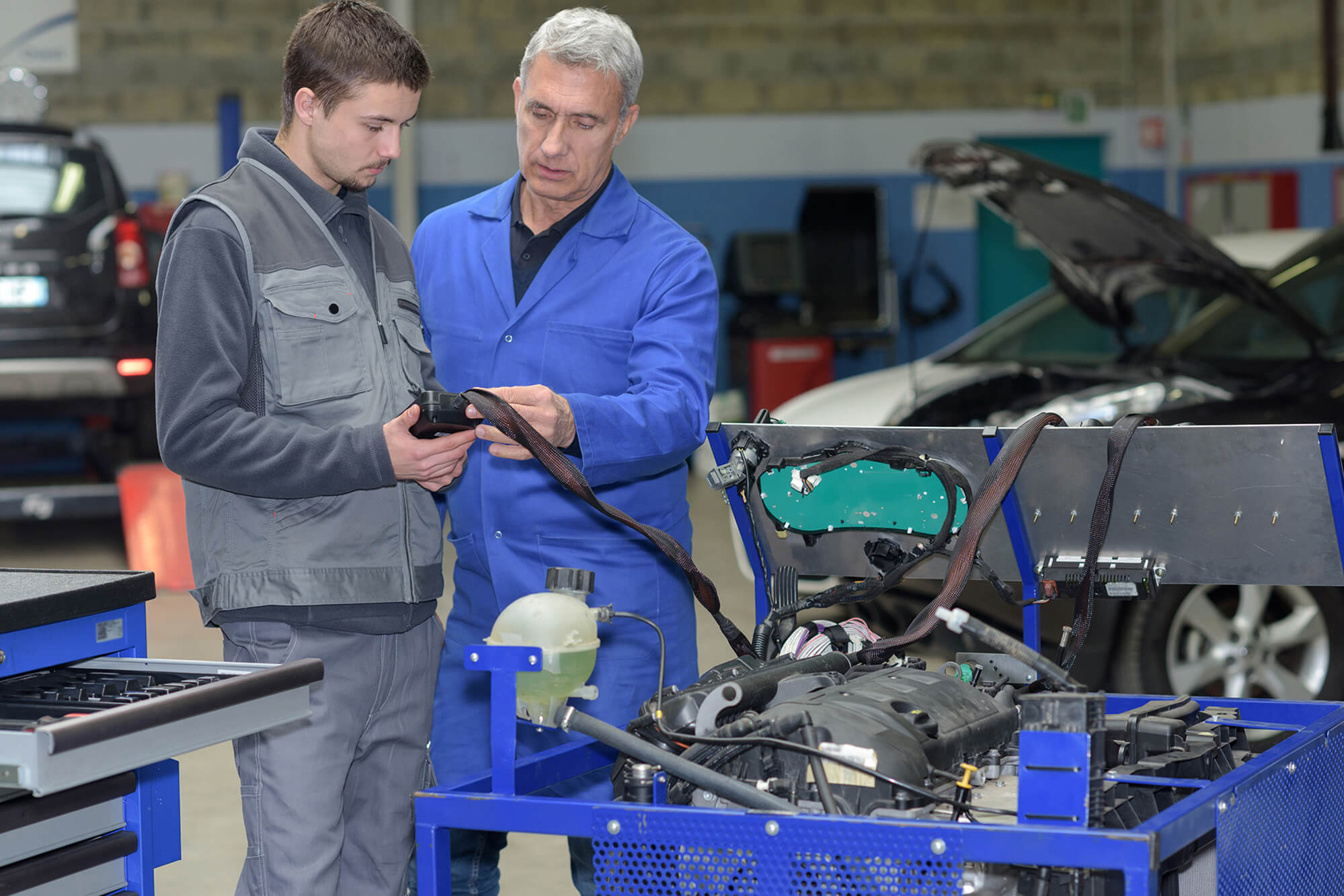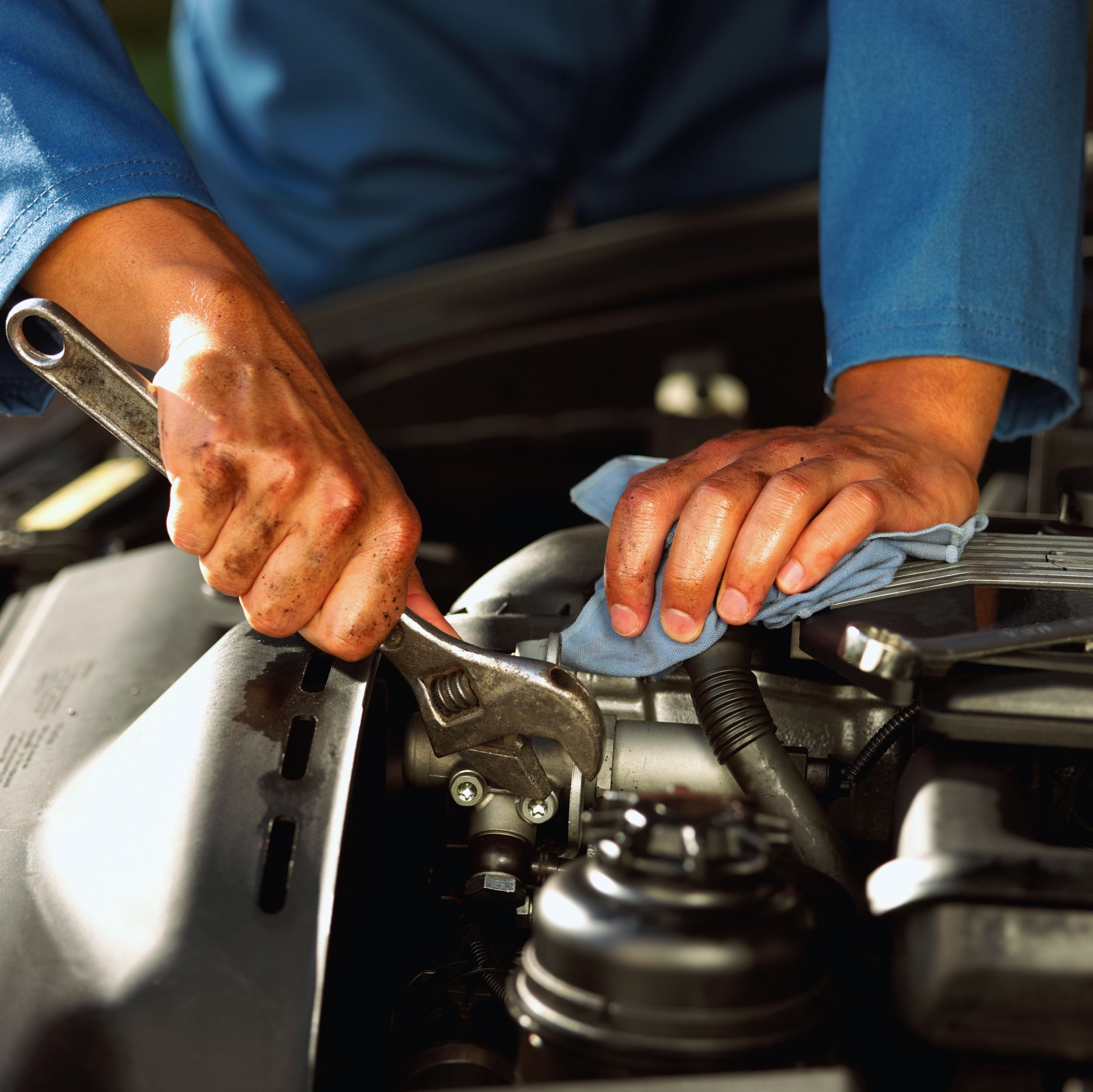

Community college programs encourage students to complete an applied science degree and then acquire an automotive technology certificate. There are test preparation guides for all certifying exams. To obtain certification, students spend over 1,000 hours working on cars and must pass a written exam. All auto mechanics are required to be certified (not by law, but by employers-few will hire uncertified personnel). Most mechanics find themselves in technical educational programs after graduating high school, but a few high schools offer four-year automotive programs that culminate in certification.
AUTO MECHANIC MANUALS
Students begin their training by studying car processes in manuals and then work on older cars. While this emphasis on ongoing training intimidates some, most soon find that motivation and an enthusiastic instructor can help. The integration of computers in automobiles means mechanics must be familiar with complicated new systems. Aspiring auto mechanics must have increasingly sophisticated vocational skills and must constantly adapt to continually changing technology. The days of the uneducated grease monkey are over. They can also rise to the ranks of supervisor or manager, particularly if they have strong interpersonal skills to calm cranky customers who are displeased by high service bills and inconvenience. As they gain experience they can move into higher-paying, specialized positions. They read trade papers daily to keep abreast of changes and trends in their industry.
AUTO MECHANIC FULL
Most auto mechanics intern while still in automotive repair school, then work full time at the same dealerships. "Computers have become as much a part of the tool box as wrenches," said one mechanic. More and more, cars are controlled by electronic instruments, so mechanics are using computers constantly. As a result, the job requires more preparation than ever before. Auto mechanics proudly compare themselves to doctors (though not, unfortunately, in salary range), since they mainly see people with complaints but whereas the human body and its problems have remained essentially unchanged for millennia, the designs of cars change every year.


The best mechanics have mastery of a wide variety of integrated skills: electrical systems (a car's wiring is more complicated than an average home's) computerized electronics (a television set seems simple by comparison) fuel systems and refrigeration (a car's "plumbing" is a Byzantine maze of tubes).
AUTO MECHANIC DRIVERS
When people come in for an automotive check-up, mechanics often replace worn parts before they become hazardous to the driver, even though drivers can be suspicious of mechanics who recommend the replacement of parts that haven't stopped functioning. Some mechanics compare their field to that of the physician, because most people come in only when their car is in dire straits, not when regular preventive maintenance could have avoided the problems altogether. Sometimes he repairs parts, but if the part is worn or damaged, he replaces it. Electronic diagnostic equipment is useful but the good mechanic can tell a lot by using eyes, ears-even nose-as he searches for problems and potential hazards. The mechanic examines the engine while it is running (if possible) to see if his initial assumptions are correct. Speed and accuracy in diagnosis and quoting prices to the customer are crucial if the mechanic intends to keep long-term clients. The most challenging aspect of car repair is often the mechanic's favorite part: diagnosing the problem. Some mechanics work on all parts of any car, while others specialize in one area or on one type of car. Private Tutoring with Pass Assurance NEWĪuto mechanics repair and maintain cars.


 0 kommentar(er)
0 kommentar(er)
